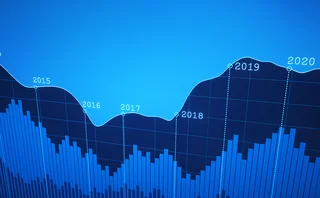
Friendless but lucky
Remember, this is the guy who gave the keynote address at the International Swaps and Derivatives Association’s annual general meeting last year in Washington.If Lugar backs this type of legislation, does the industry have any friends left in Washington?
Well, at least one: the remaining stalwart from the original four regulatory bigwigs who, under the aegis of the ‘President’s Working Group on Financial Markets’, signed off on the landmark 1999 report that urged deregulation of the over-the-counter derivatives industry – Alan Greenspan – is taking up the cudgels again. In a strongly worded speech late last month, he attacked proposals for more disclosure of proprietary information and otherwise bravely breathed his usual fire to an audience... in London.
OK, Greenspan has a full-time job keeping his game-face on at home, trying to prop up the consumers’ and the markets’ failing belief that the Fed can keep the economy from spiralling into the abyss. And London’s Society of Business Economists was probably not the most hostile audience for Greenspan’s ringing endorsement of free markets and innovation.
And Greenspan, along with the rest of the current President’s Working Group (consisting of the chairs of the Fed, the Securities and Exchange Commission and the Commodity Futures Trading Commission, along with the secretary of the Treasury) has in fact weighed in against the new legislative initiative, firing off a strongly worded letter to its backers. (Industry pitbull Isda bared its teeth two days later in a release saying it ‘concurs’ with the regulators.) But clearly the political capital these regulators will be willing to spend defending derivatives dealers, while they and their Justice Department brethren investigate these same insti- tutions for a host of alleged misdeeds, is limited.
It’s only a small exaggeration to say the bulge bracket of the dealer community, the very sources of the money that once flowed to election campaigns and the lobbyists that once swarmed over Gucci Gulch, have no credibility in Washington, and they are tempting targets for pre-election political posturing.
The equity analyst scandals are a perfect case study in the costs of reputational risk – no politician on the eve of mid-term elections is going to think to cut the dealers any slack on derivatives issues when pillorying them for their stock-sales abuses plays so well to voters. Not all US voters know the name Mahonia, but they probably know Enron and WorldCom, and many certainly know Jack Grubman. Who believes, a month short of elections, that politicians will waste time making distinctions among the scandals?
In a way, derivatives dealers are lucky that so much is going on in the US. With the debate over Iraq, economic worries and the war on terror, few US politicians have the time to actually bring a re-regulation bill to fruition. But this isn’t a government relations strategy, it is simply good fortune.
Only users who have a paid subscription or are part of a corporate subscription are able to print or copy content.
To access these options, along with all other subscription benefits, please contact info@risk.net or view our subscription options here: http://subscriptions.risk.net/subscribe
You are currently unable to print this content. Please contact info@risk.net to find out more.
You are currently unable to copy this content. Please contact info@risk.net to find out more.
Copyright Infopro Digital Limited. All rights reserved.
As outlined in our terms and conditions, https://www.infopro-digital.com/terms-and-conditions/subscriptions/ (point 2.4), printing is limited to a single copy.
If you would like to purchase additional rights please email info@risk.net
Copyright Infopro Digital Limited. All rights reserved.
You may share this content using our article tools. As outlined in our terms and conditions, https://www.infopro-digital.com/terms-and-conditions/subscriptions/ (clause 2.4), an Authorised User may only make one copy of the materials for their own personal use. You must also comply with the restrictions in clause 2.5.
If you would like to purchase additional rights please email info@risk.net
More on Economics
Global investment outlook: 2026 and beyond
Broadening, steepening and weakening: Franklin Templeton’s top investment ideas for 2026 and beyond
Webinar – Nowcasting the US economy
Join CME Group Chief Economist, Blu Putnam, as he shares insights using alternative data and nowcasting to monitor developments in the US economy.
Fed Funds Futures in a Post-ZIRP World
As the FOMC returns to more active management of its key target rate, Federal Funds futures have experienced dramatic growth.
Challenging economic pessimism: an optimistic note
A contrarian, upbeat view of the long-term economic outlook
Economists, like hedge fund traders, need open minds
Economists, risk managers and traders must learn the lessons of crisis, says Kaminski
Fed wrong not to start QE tapering, says UBS economist
The surprise decision by the Federal Reserve last month not to scale back its quantitative easing programme will create more volatility, says economist







